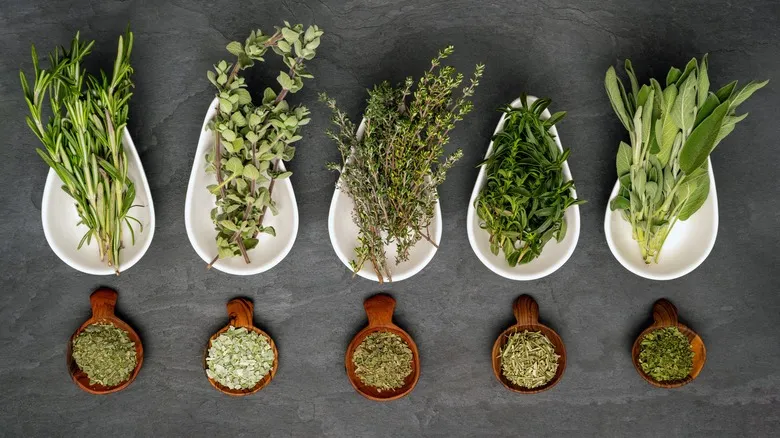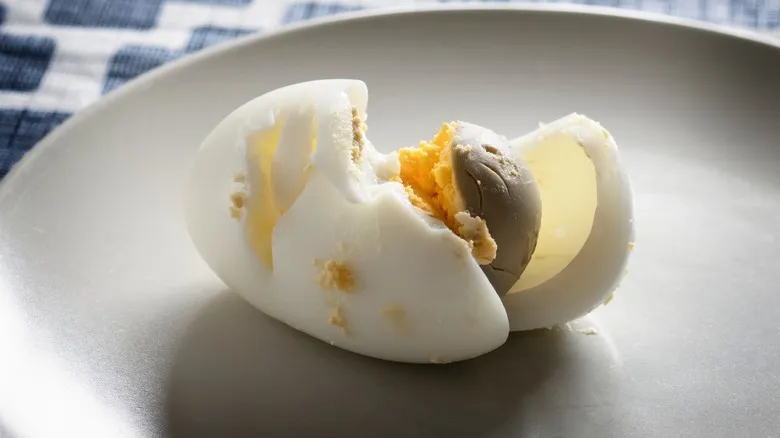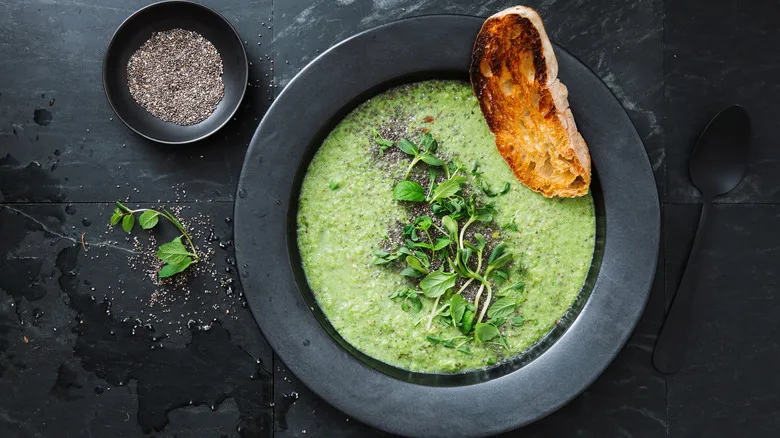When to opt for dried herbs instead

If patience isn't your strong suit, don't let fresh herbs suffer for it. With dried herbs readily available, you can incorporate your rosemary and sage earlier in the cooking process, as these herbs thrive when simmered longer, allowing their flavors to fully develop. Plus, drying your own herbs at home is a breeze, so why not give it a try?
There are several advantages to using dried herbs instead of fresh ones. Robust dried herbs like rosemary and thyme can deliver the same, if not more intense, flavor as their fresh counterparts, minus the moisture. This means you don't have to sacrifice taste when making the switch. However, for delicate herbs like dill or mint, fresh is often the better choice for a more vibrant flavor.
Additionally, while fresh herbs typically spoil within a week, dried herbs can last for months or even years in your pantry while maintaining their quality. If you open the jar and can still detect the aroma, they’re still good; if not, it’s time to toss them. Fresh herbs spoil more quickly, which also makes them pricier due to the extra effort required to keep them fresh. So, if you're watching your budget, choosing dried herbs is a smart move. But if you want to add a splash of color and flavor to a bland beef stew, consider using both! Just remember to add the dried herbs earlier in the cooking process and the fresh ones towards the end.
Recommended

This Simple Burger Hack Will Give You The Perfect Patties Every Time

What's Turning The Yolks Of Your Hard-Boiled Eggs Green (And How To Stop It)

The Simple Method For Perfectly Reheated Nacho Cheese Sauce

McDonald's McRib Fans Should Head To Sam's Club
Next up

